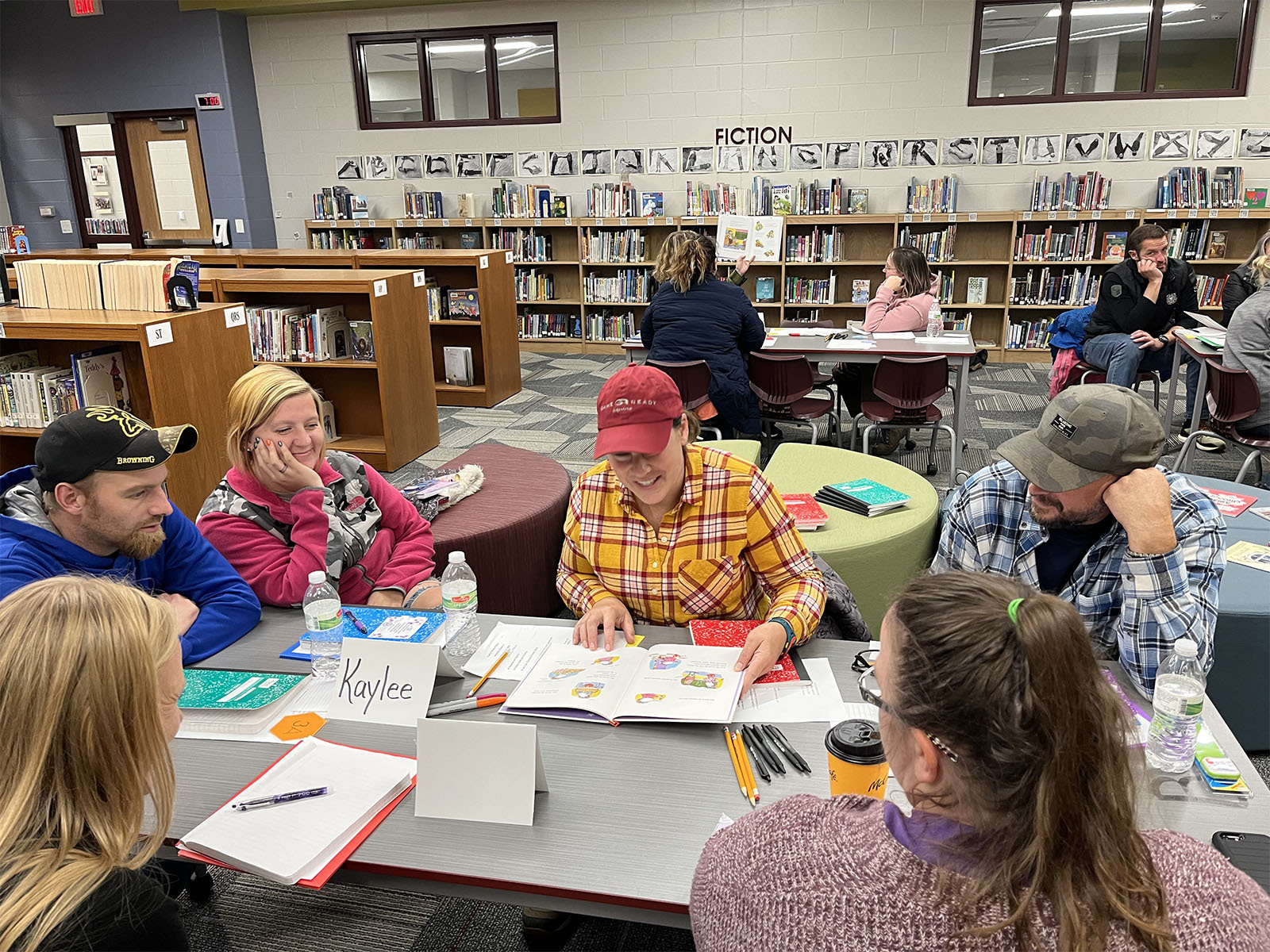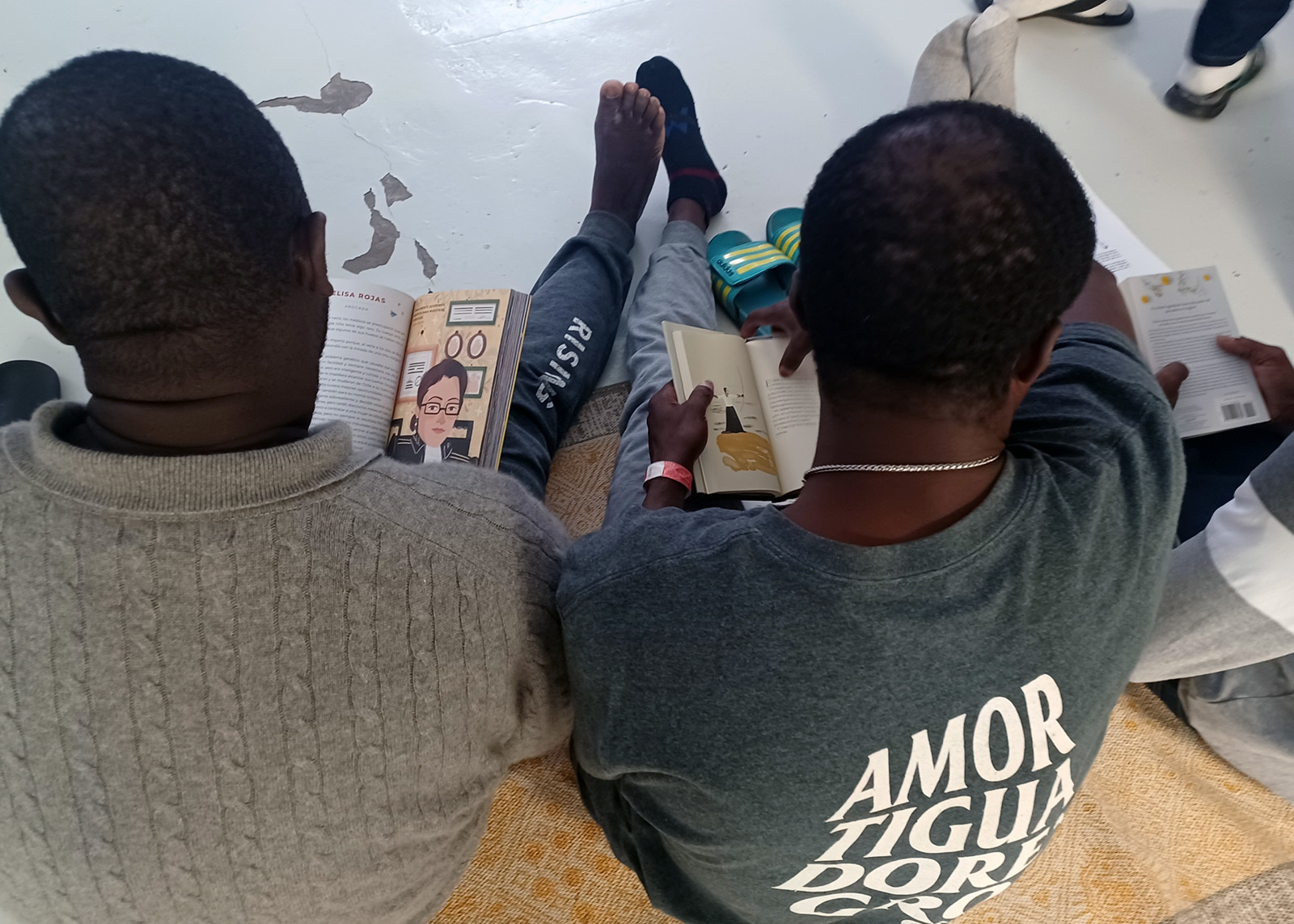By Erin Wilkey Oh
When many of us retreated into isolation or semi-isolation at the height of the coronavirus pandemic, humanities organizations and cultural institutions struggled. With programming canceled and visitors staying home, museums, writing centers, archives, and historic sites took huge losses.
The Building a More Perfect Union grant program, part of the National Endowment for the Humanities (NEH) American Rescue Plan, aimed to help cultural institutions recover from the interruptions caused by the coronavirus pandemic. They enabled organizations to expand programming, reconnect with their communities, develop new audiences, and build relationships with other cultural institutions. As many of the grant recipients discovered through their projects, the work helped not only the organizations involved, but also individuals and their communities who were in need of support after the trauma of the pandemic.
Two of the grant projects that reported this kind of impact were focused on family literacy, bringing communities together to connect and learn through reading and writing. In Michigan, family literacy events helped build a stronger connection between parents and children, and educators and families. And in Arizona, an emerging literacy program got a second chance to bring communities together to read and talk about books.
Family Literacy Projects
The Top of the Mitt Writing Project leveraged a majority of their Building a More Perfect Union grant funds to support families in five of the highest-needs communities in rural northern Michigan—Alanson, Boyne Falls, Charlevoix, Grayling, and Pellston. After a couple of stressful years for parents and educators, the project aimed to help teachers and families strengthen relationships and create stronger connections between school and home through a set of Family Literacy Projects.

The Family Literacy Projects consisted of six weekly sessions during which teachers and parents had conversations about parenting, teaching, and literacy. They shared their experiences with each other, their challenges, and their hopes. Parents and teachers journaled their way through each of the six session projects that culminated with a collaborative, community publication of poetry, illustrated by the students. One group of teachers and parents in Pellston, Michigan published a second anthology of family recipes that took shape from the engagement of the school Food Service staff who prepared the light dinner menu for each of their Family Literacy gatherings.
The Family Literacy Projects had just as much impact on community-building and strengthening the school-home connection as they did on family literacy practices. One parent participant shared, "We made friends, strengthened existing relationships, and made lasting familial habits and memories. Last year was a tough school year for my family. This program gave us a huge infusion of positivity, with regard to school, that we needed quite badly." Another parent participant reflected, "It was great to get to know the teachers better and it further convinced me how passionate the teachers are about the kids they teach."
Going forward, the Top of the Mitt Writing Project will continue to expand the work by offering professional development workshops in area schools and by sharing the resources both online on the Top of the Mitt Family Literacy Project webpage and in person at the MCTE Fall Conference if their proposal is accepted.
As we move forward in a post-pandemic society—one that continues to be polarized by divisive politics and a gap in empathy across differences—programs that help us connect and learn from one another like the Family Literacy Projects will be as relevant as ever. As the founding director of Top of the Mitt Writing Project Toby Kahn-Loftus said, "Our Family Literacy Projects not only addressed the isolation of COVID, but they also addressed the broader themes of 'Building a More Perfect Union.'" Inspired by their collaborative literacy work, each of the five communities is currently seeking out new funding sources in hopes of offering a Family Literacy Project again this coming school year.
Salas de Libros

In March 2020 when the pandemic forced us into isolation, the team from Worlds of Words: Center of Global Literacies and Literatures (WOW) at the University of Arizona was on the cusp of launching a new family and community literacy program in the Tucson, Arizona, area called Salas de Libros. Based on Salas de Lectura, a beloved literacy program in Mexico, Salas de Libros—which translates literally to "living rooms of books"—are intergenerational gatherings for children, teens, and adults to explore cultural identity and community through reading and literary engagements. With the Building a More Perfect Union grant, WOW and the Southern Arizona Writing Project partnered to restart this program and launch 10 Salas de Libros in the Tucson region.
Salas de Libros—referred to as Salas—are facilitated by community members known as literary mediators. The project involved training a cohort of 20 mediators in four sessions with Arizona-based teacher-leaders and experts from the Sala de Lectura program in Mexico. The mediator training sessions covered an overview of the program and the logistics of running Salas; strategies for promoting lifelong readers; approaches to poetry, nonfiction, and literature; and more. In addition to the training sessions, the team developed themed book curations and a collection of literary games for mediators to use in the Salas.
The participants and facilitators shared that the training sessions helped bring the community together and nurtured connection through learning. According to Carol Brochin, director of the Southern Arizona Writing project and co-lead on this project, "The pandemic has led to more isolation and anxiety for educators and resulted in a loss of a sense of community, of time for being together to laugh and cry." She continued, "In our Salas workshops for mediators, we used a range of strategies that helped build a sense of being connected as a community, challenging the isolation we all felt so strongly in our lives, especially with colleagues who came from so many different community contexts."
The Salas themselves are now bringing families and communities together for recovery and healing across the Tucson area and beyond. Several mediators are facilitating Salas in migrant shelters on the U.S.-Mexico border, where they are working in collaboration with humanitarian organizations to serve individuals and families awaiting asylum hearings. To further support these Salas, the program facilitated additional workshops led by a Salas de Lectura mediator from Mexico, who shared strategies to use with migrants. Carol Brochin described this as an example of how unique the program is: "This session bridged two languages, two countries, and mediators from different communities all working towards social transformation through the love of literature."
The program will continue to grow in the future as the team is applying for additional grant funding. Their plans include training a new cohort of bilingual mediators and expanding the Salas to focus on BIPOC communities in Southern Arizona.
Feature photo: Liz Gaxiola

